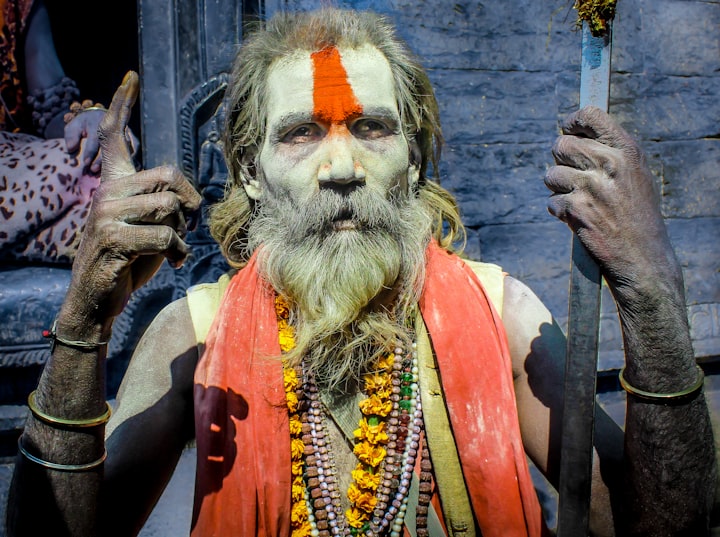My Hidden Scars
Why do people turn to cutting themselves?

Cutting yourself is for attention, right? Wrong.
It’s all so familiar, the teen with cuts all down their arms, ridiculed by the same students that comment “scars are beautiful” for likes and an ego boost. It’s become a large part of social media, all based on stereotypes and judgements from ignorant reflections on a laptop screen.
Throughout this culture of supporting anonymous self-harm on the internet yet mocking the same act when faced with it in real life, we have lost focus of the meaning behind it.
Surprisingly I feel sincere joy for the people who show no understanding towards those of us with scars, that they have never had to experience the excruciating pain that leads you to believe that physically hurting yourself is the ONLY option.
And it is. Excruciating.
The tidal wave of negative energy that overwhelms your brain at once. The pain so bad that you can feel your core cracking within you. Words cannot express, and even if they did you couldn’t get them out anyways. Heart racing as you prepare to fight or flight. But there is no fleeing. Not from your own body. Your own thoughts. Your mind has become a tangled web of confusion, pain tangled up with anger, devastation tangled with frustration. Impossible to make sense of.
So, you punch a wall.
A result of the devastation that causes you a pain a cast just wouldn’t fix. The frustration that the feelings are becoming more and more unbearable. The anger that your heart will never be fixed.
It hurts. But it feels good. You deserve it anyway, right?
You don’t know what to do with your pain. There is no way to express it. You just know that it’s you. You’ve done something wrong. You’ve got to live with this shattered heart forever. The initial thoughts are forgotten as you start to picture the pain physically. Would getting hit by a car hurt less than this? Laying dead in the middle of the road, battered until black and blue. It would hurt less to get shot, right? A sudden bang, blood pouring out of your skull, but a quick ending.
And in your state of utter brokenness, you realise that yes, anything would hurt less than this pain.
So, in a whirlwind of total despair, a hate towards yourself so strong, a need for the pain to stop, and the constant image of your lacerated body that has tattooed itself on your mind, you grab the blade. Anything sharp. Anything that will cause damage. And you cut.
You wince at the pain but do not hesitate as the blade drags through the skin. The more it hurts, the closer it is to the emotional pain, and the more deserving you feel. Looking down at the cut you’ve created, you watch as it turns from white innocent flesh to an ocean of bright red blood. You know that you deserve it. You already want to go deeper. You really deserve it. As blood pours out of the freshly drawn stripes upon your body, you feel pride. There it goes, all that pain, running right out of you.
"Anyone can say what they want, but they’ll never be able to hurt me as much as I can hurt myself," you tell yourself as the satisfaction kicks in.
This delusional thought makes you feel better. Everything is okay because you’re in control of your own pain, right? Wrong.
Emotional pain takes a lot to heal. A lot of time. A lot of support.
It keeps returning.
And every time, you can’t cope.
Until you return to the sharp edge of a blade, your newly found friend.
Think about it. You have a headache once, you take a painkiller. The next time you have a headache, you think about what has helped the headache in the past. Every time you’re experiencing emotional pain, the kind of pain that cannot be healed in an instant, you use the same technique that has helped you before.
Your brain is going nowhere. The memories of the pain are going nowhere. There will be triggers forever surrounding you. There will be new sources of pain just over the horizon.
The need to treat this pain becomes more and more frequent.
The desire for more pain and more blood becomes higher and higher as your body adjusts to the feeling blade slicing into your flesh.
It becomes an addiction.
You have become a victim, and you are the abuser.
It’s not just cutting. Everything becomes about punishing yourself for the pain you experience. Pinching yourself to cope with the rude customer. Scratching yourself when you need that extra "hit" to cope with the daily pain. Banging your head against the wall when you want to punish your own brain for the suffering its putting you through.
Engrained in the coding of your brain waves, this disease is now in the driver’s seat of every thought you have, and you don’t even know it. You’re in control, remember? Besides, fighting this affliction requires fighting your own thoughts. Fighting against the map of established, but detrimental, pathways formed throughout your brain. And this is certainly no easy feat. It requires effort every day, every ounce of energy you have, the strongest willpower.
Does this sound like attention seeking? The innocent act of attempting to cease excruciating pain, which made way for a dangerous entity to enter and hold that person hostage within their own life course.
That kid at the back of the classroom, wearing their jumper in the scorching heat to cover their scars. Or the kid sitting out sick every P.E. lesson to avoid getting changed and exposing the burn marks covering their body. Or the applicant who shakes your hand at the interview and reveals their cuts. Or the one night stand you’ve taken home who undresses to uncover legs decorated in self-mutilation.
None of these people represent attention seeking.
They may not even know they need help. This may be the only sense of control they get to experience in their daily lives. The monster inside doesn’t reveal itself. Instead, it thrives off every bit of pain encountered and continues to control every situation that arises.
So rather than judging that person for how they’ve damaged their body, instead have compassion. They have a long journey to embark on, a war to be fought, battling against the disease that has riddled their own brain. On top of all that, they really don’t need the stress of fighting stigma that has been engrained on society’s minds.
Having compassion for a person who has struggled or is still struggling doesn’t mean you have to accept it as okay. It’s not a healthy behaviour. Scars are not beautiful. Cutting yourself doesn’t make you strong.
It’s the courage that a person must possess to expose their greatest vulnerabilities in an attempt to better themselves. THAT’S WHAT IS TRULY BEAUTIFUL. The distress a person has to endure in order to identify a need to change, admit lack of control, and overcome the many challenges on the road to recovery, THAT IS WHAT REPRESENTS STRENGTH.
About the Creator
Lovatic Love
Passionate advocate for Mental Health. No one deserves to feel alone. Everybody deserves a friendly smile and a helping hand.






Comments
There are no comments for this story
Be the first to respond and start the conversation.